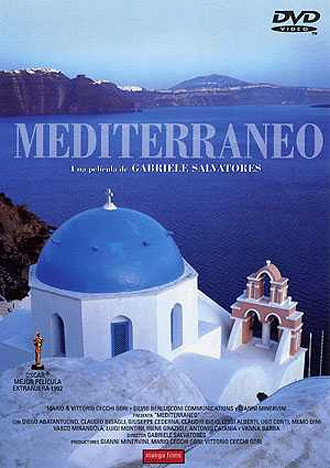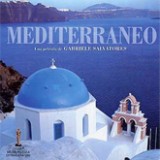In tempi come questi, la fuga è l’unico mezzo che rimane
per mantenersi vìvi e continuare a sognare.
In times like these, escape is the only mean available
for keeping alive and continue dreaming.
– Henry Laborit
 This film opens up with this quote to set the stage for a simple truth; sometimes we need to go out of our comfort zones, venture into new environments, take a few steps back – to allow us to evaluate from afar our goals and dreams.
This film opens up with this quote to set the stage for a simple truth; sometimes we need to go out of our comfort zones, venture into new environments, take a few steps back – to allow us to evaluate from afar our goals and dreams.
Director Gabriele Salvatores brings together a group of soldiers during world war II that as part of their mission OC (Observation & Communication) found themselves deserted on a Greek island. This “bubble existence” on this Homeric island, sheltering the soldiers from the havocs of war brings the troupe to evaluate their personal priorities and their interests in life. For example, lieutenant Montini is connected back to his painting as he remodeled the local church, piccolo Farina finally finds love with Vassilissa, the local prostitute turned Taverna owner.
The film has three distinct parts: the troupe arrival on the island, life on the island, and the reunion on the island. You may consider this as new experience creation, living the experience and finally fast-forwarding into the future by revisiting the experience many years later. The first part deals with the transition of the troupe from the external world of war and their clear duties in it into second part – the idyllic life on the island where out of being disconnected, the soldiers are left to explore their personal truths. Finally, the last part offers another perspective from the advantage of time passed, about what this experience on the island really meant.
All soldiers provide a brilliant performance reflecting diverse backgrounds of different parts of Italy. This mixed bag of characters offers plenty moments of humor and memorable dialogs that will keep you smiling days after watching.
And lastly the film is supported by the enchanting soundtrack by Giancarlo Bigazzi that supports the slow, carefree Mediterranean life on the Island of Oblivion as the soldiers call it. In this sense, the film is both about the essence of escape and at the same time provides escape to viewers following the narrative within the confines of entertainment as an outlet from the mundane. If you’re still unconvinced, well the film won the Academy Award for Best Foreign Language Film in 1991.
[youtube width=”615″ height=”461″]https://youtu.be/om1-bi5yeWM[/youtube]
Trailer
The final scene shows sergente Lorusso sitting accompanied by his now older comrades, turning his head back into an unknown point. I’d say this simple head movement is like looking back into the past, saying we shouldn’t wait a lifetime to do the things we really care about.


